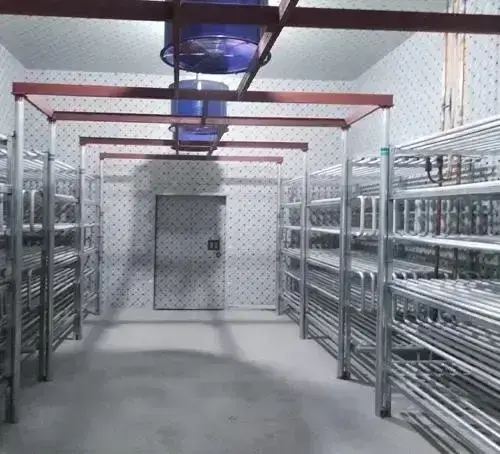Optimal Conditions for Storing Potatoes in Cold Storage Facilities
The Importance of Cold Storage Rooms for Potatoes
Potatoes are one of the most widely consumed vegetables in the world. They are not only a staple in many diets but also a versatile ingredient used in various culinary dishes. However, to maintain their freshness and nutritional value, proper storage is essential, especially for large quantities harvested for commercial purposes. This is where cold storage rooms become critical.
Cold storage rooms, specifically designed for the preservation of agricultural products, play a vital role in potato storage. These rooms are engineered to create an environment that slows down the metabolic processes of the potatoes, thus extending their shelf life. The ideal temperature for storing potatoes is typically between 7 to 10 degrees Celsius (45 to 50 degrees Fahrenheit). At this temperature range, potatoes can be kept for several months without significant loss of quality.
The Importance of Cold Storage Rooms for Potatoes
Humidity levels also play a significant role in potato storage. Ideal relative humidity for potato storage is around 90 to 95%. This high humidity level ensures that the potatoes do not lose moisture, which can lead to shriveling and weight loss. Cold storage rooms are equipped with sophisticated humidity control systems to maintain these conditions. These systems often include humidifiers and dehumidifiers, ensuring that the storage environment remains optimal at all times.
potato cold storage room

Another important aspect of potato cold storage is airflow. Proper ventilation is crucial because it helps to remove excess heat and humidity that can build up within the storage room. Air circulation prevents the development of mold and reduces the risk of rot, which can severely compromise the quality of stored potatoes. Additionally, good airflow helps to distribute the cool air evenly, ensuring that all potatoes are stored under consistent conditions.
Cold storage rooms also contribute to the economic efficiency of potato storage. By extending the shelf life of potatoes, producers can manage their inventory more effectively, reducing waste and potential losses. This is particularly important for farmers and distributors who operate on a tight schedule. With the ability to store potatoes for longer periods, they can time their sales to meet market demands better, often leading to higher prices during off-peak seasons.
Sustainability is another reason why cold storage solutions for potatoes are gaining popularity. With global food waste reaching alarming levels, finding ways to extend the life of perishable products is essential. Cold storage rooms that utilize energy-efficient technologies can dramatically reduce the carbon footprint associated with potato preservation. For example, modern cold storage facilities often include advanced insulation materials, energy-efficient cooling systems, and renewable energy sources, such as solar panels. This not only reduces energy costs for producers but also supports environmentally friendly practices in agriculture.
In addition to commercial storage, cold storage technology is also beneficial for individual consumers. Home refrigeration units that are designed to store potatoes can help maintain their freshness for longer periods. For those who enjoy gardening and wish to store their homegrown potatoes, understanding the principles of cold storage can make a significant difference in the quality of their produce over time.
In conclusion, the importance of cold storage rooms in preserving potatoes cannot be overstated. These specially designed environments help maintain optimal temperatures, humidity levels, and airflow, all of which contribute to extending shelf life and preventing spoilage. As the global demand for food increases and sustainability becomes a higher priority, investing in effective cold storage solutions will be key to reducing waste and ensuring that delicious, nutritious potatoes can be enjoyed year-round. From commercial producers to everyday consumers, everyone stands to benefit from understanding and utilizing the advantages of cold storage for potatoes.
















































































































